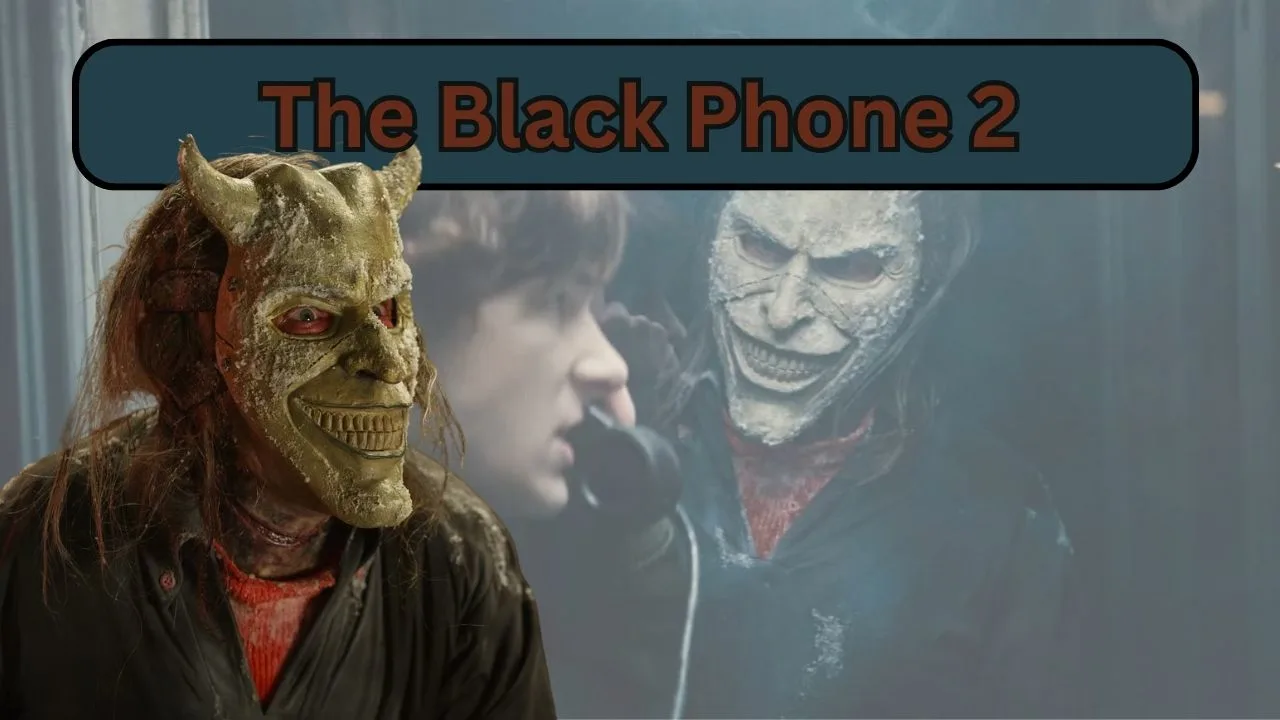Religion has always haunted horror movies — but rarely in the way The Black Phone 2 dares to portray it.
In their long-awaited sequel, director Scott Derrickson and co-writer C. Robert Cargill—best known for Sinister and Doctor Strange—revisit faith not as dogma but as messy, human, and sometimes hilarious. Both men are open about being Christian, yet they reject the label “Christian filmmakers.”
“ ‘Christian’ is a bad adjective,” Derrickson quipped after the film’s world premiere at Fantastic Fest 2025. “We’re not preaching; we’re exploring.”
The result is a film that challenges Hollywood’s usual treatment of religion in horror—where demons dominate and divinity disappears—and instead puts a flawed but sincere faith at the story’s center.
Introduction to the Update: A Horror Sequel With a Soul
In The Black Phone 2, returning siblings Finn (Mason Thames) and Gwen (Madeleine McGraw) are sent to a snow-blanketed Christian camp, still haunted by the trauma of the Grabber (Ethan Hawke). There, Gwen’s fierce spirituality collides with the hypocrisy of so-called “good Christians” running the camp—Barbara and Kenneth (“Barbie and Ken”), a sanctimonious duo who police her every word.
Cargill says these characters stem from real frustration:
“We’ve both met people who wield Christianity like a weapon,” he explained. “Gwen, by contrast, just lives it—imperfectly, colorfully, authentically.”
At its heart, The Black Phone 2 is a battle between faith as control and faith as compassion.
Key Features
| Aspect | Description |
|---|---|
| Genre | Supernatural horror / psychological thriller with spiritual undertones |
| Directors / Writers | Scott Derrickson & C. Robert Cargill |
| Main Cast | Madeleine McGraw, Mason Thames, Ethan Hawke |
| Setting | 1980s Colorado → a snowed-in Christian youth camp |
| Themes | Faith vs. hypocrisy, guilt, redemption, afterlife |
| Tone | Darkly humorous, intimate, and unsettling rather than evangelical |
Film critic Dana Whittaker summarized it best:
“It’s rare to see a horror film that mocks judgmental Christians and still finds grace in belief. The Black Phone 2 does both.”

Faith, Hypocrisy, and Humanity
While the first Black Phone hinted at divine presence through Gwen’s dreams, the sequel brings religion to the forefront—only to dissect it. Gwen still prays in her blunt, swear-laden way, but now she confronts those who weaponize scripture.
Cargill recalls writing Gwen’s most crowd-cheering moment:
“The audience at Fantastic Fest erupted when she literally beat a sanctimonious bully with a Bible,” he laughed. “It was cathartic for everyone who’s been judged by people hiding behind faith.”
This scene, both comic and cathartic, embodies the filmmakers’ dual goal: to question organized religion while defending personal belief.
The Duality of “Good” and “Bad” Christians
| Character | Representation of Faith | Narrative Function |
|---|---|---|
| Gwen | Sincere, irreverent believer who trusts her intuition and prayer | Embodies honest spirituality |
| Barbara & Kenneth | Pious, judgmental camp staff quoting scripture for control | Expose hypocrisy within religion |
| Finn | Skeptic wrestling with trauma and belief | Audience surrogate for doubt |
| The Grabber’s Shadow | Manifestation of evil and misplaced guilt | Forces characters to define morality without certainty |
Religious scholar Dr. Elaine Torres observes:
“Derrickson and Cargill aren’t condemning Christianity—they’re reclaiming it from hypocrisy. Their films depict faith as action, not affiliation.”
The Ambiguous Hand of God
Despite its spiritual core, The Black Phone 2 never confirms divine intervention. Gwen’s visions might come from God—or her subconscious. Derrickson calls that choice deliberate:
“Faith isn’t certainty,” he said. “If you explain everything, you rob the mystery. Movies work best when they let audiences interpret.”
This restraint keeps The Black Phone 2 from slipping into sermon territory. It invites viewers—religious or not—to find their own meaning in Gwen’s private relationship with her creator.
Depicting Hell and the Afterlife
The sequel also revisits the metaphysical world glimpsed in the first film. Here, Hell isn’t fire and brimstone but the absence of empathy—a state where love and conscience have been stripped away. Derrickson frames it as existential horror rather than theology:
“Hell, to me, is what’s left when you’ve lost everything human,” he explained. “It’s dramatic, not doctrinal.”
This depiction bridges faith and psychology, showing damnation as emotional decay rather than divine punishment.
Why Humor Matters?
For all its darkness, The Black Phone 2 never forgets to laugh. Gwen’s habit of swearing through prayer—“Jesus, help me out here, please!”—turns sacred ritual into gallows humor.
Cargill notes:
“Comedy is rebellion. When you make fun of pious bullies, you take their power away. And horror needs that relief valve.”
The humor makes the film’s message more approachable, proving that spirituality and satire can coexist.
Why It Matters?: Horror Reclaims the Sacred
The Black Phone 2 lands at a time when faith-based entertainment is booming yet polarizing. Unlike traditional “Christian cinema,” Derrickson’s sequel doesn’t preach—it empathizes.
Film historian Ravi Patel argues:
“It’s a turning point for horror. By letting religion be messy, the film mirrors how modern audiences experience belief—uncertain, personal, and full of contradictions.”
From a cultural standpoint, the movie also expands horror’s vocabulary, replacing exorcism clichés with authentic, lived-in spirituality.
FAQs
Not officially. While its creators are Christian, they reject the “faith film” label. The movie explores belief rather than promoting doctrine.
No, but watching the first adds emotional context to Finn and Gwen’s trauma and resilience.
Both. It deepens the supernatural lore while examining faith and hypocrisy with more intensity—and humor.
As a psychological void where humanity is lost, not a fiery pit—echoing Derrickson’s belief in symbolic evil.
Her faith is imperfect yet compassionate. She represents a believer who questions, argues, and still loves.
Neither Derrickson nor Cargill has confirmed it, but both have hinted that if they return, it would explore the “afterlife” more directly.